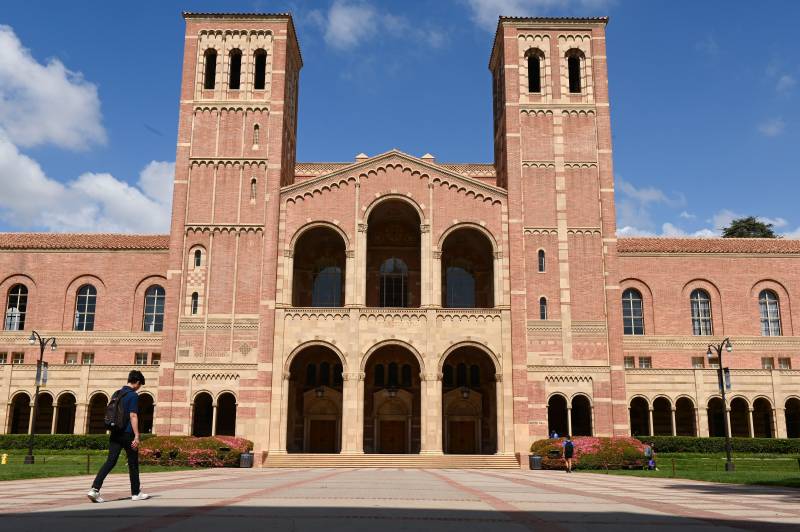As a freshman at UC Davis last year, Saishruti Adusumilli got hooked on coding after excelling in an introductory course. So she mapped out a plan to tack on a computer science major while also working toward a political science degree.
The first step: more computer courses. But as she rose into more sophisticated classes, she began to feel “an almost crippling level of self-doubt.”

“I started questioning whether I was smart enough — or I was the type of smart — to succeed in a subject like computer science,” she said.
The anxiety was unusual; weird, actually. As a high school student, Adusumilli co-founded a nonprofit to spread awareness about mistreatment of girls in India, delivering a TEDx Talk on the subject. In political science courses, she felt confident and self-assured, even when discussing unfamiliar topics. So what was the difference for computer science?
Eventually she realized that unlike in her social science courses, all of the computer science professors and most of her classmates were male. The self-doubt stemmed from not seeing other women in the program.
“There’s this undeniable benefit to seeing people that look like you in higher education,” she said.
Adusumilli’s experience is one reason she supports Proposition 16, a repeal of California’s nearly 25-year-old ban on affirmative action. She hopes scrapping the law would help bring more women and people of color into computer science courses like those at UC Davis.
Californians passed the 1996 ban in the form of Proposition 209, with 55% of the vote. The measure made it illegal for universities, public sector employers and governments to consider race, sex or ethnicity when selecting job and school candidates. A repeal would overturn that ban, though it would not require affirmative action programs to be reinstated.
Since its passage, the law has withstood a dizzying number of court challenges, and with Proposition 16, affirmative action supporters may have their best opportunity for repeal since it went into effect.
Racial Reckoning in STEM
This year, the scientific community joined the wider movement against racial bias, with many prominent journals and institutions acknowledging that people of color are woefully underrepresented in the field.
STEM-field bachelor’s degrees awarded to Black students, for example, are falling nationwide. Meanwhile, federal statistics show that women receive higher percentages of undergraduate degrees overall, but significantly lower percentages of those in STEM areas.
Adusumilli and other supporters of Proposition 16 say the return of affirmative action programs could help diversify UC in general and STEM classes, in particular.
The UC Board of Regents has unanimously endorsed the repeal of Proposition 209, saying the affirmative action ban “challenged the university’s ardent efforts to be equitable and inclusive as it seeks to attract the best and brightest students from all backgrounds, while ensuring equal opportunity for all.”
“The reality is UC has been unable to reflect California’s full diversity in its student body,” the board wrote in a statement.
Enrollment statistics seem to bear that out. For the past two decades, they show Latino, Black and Native American students as underrepresented across the system.
The gap has closed in recent years, especially for Latino students, but the latest diversity report shows the disparity is pronounced in STEM disciplines, and increasingly so for graduate departments and faculty positions.
Syreeta Nolan, a senior at UC San Diego, studies cognitive and behavioral neuroscience. She supports Proposition 16 and says many Black students like herself don’t feel like they have a “clear pathway in STEM.”
“It’s not like Proposition 16 will create a quota that needs to be filled,” Nolan said. “But there’s thought and proactive recruiting of Black students. That needs to be allowed to diversify the college environment.”
Lilly Irani studies the impact of computer algorithms on people, and as a faculty researcher in the UC San Diego communications department, she teaches both STEM and non-STEM classes.
The lack of diversity in STEM subjects is noticeable, she says, and many of her computer science students seem to share a particular set of life experiences, so that they “are less likely to have a job outside of school and are not able to reflect on real-world issues like housing affordability.”
A supporter of Proposition 16, she believes rolling back the ban could help seed the technology industry with a wider array of perspectives than it currently includes.
